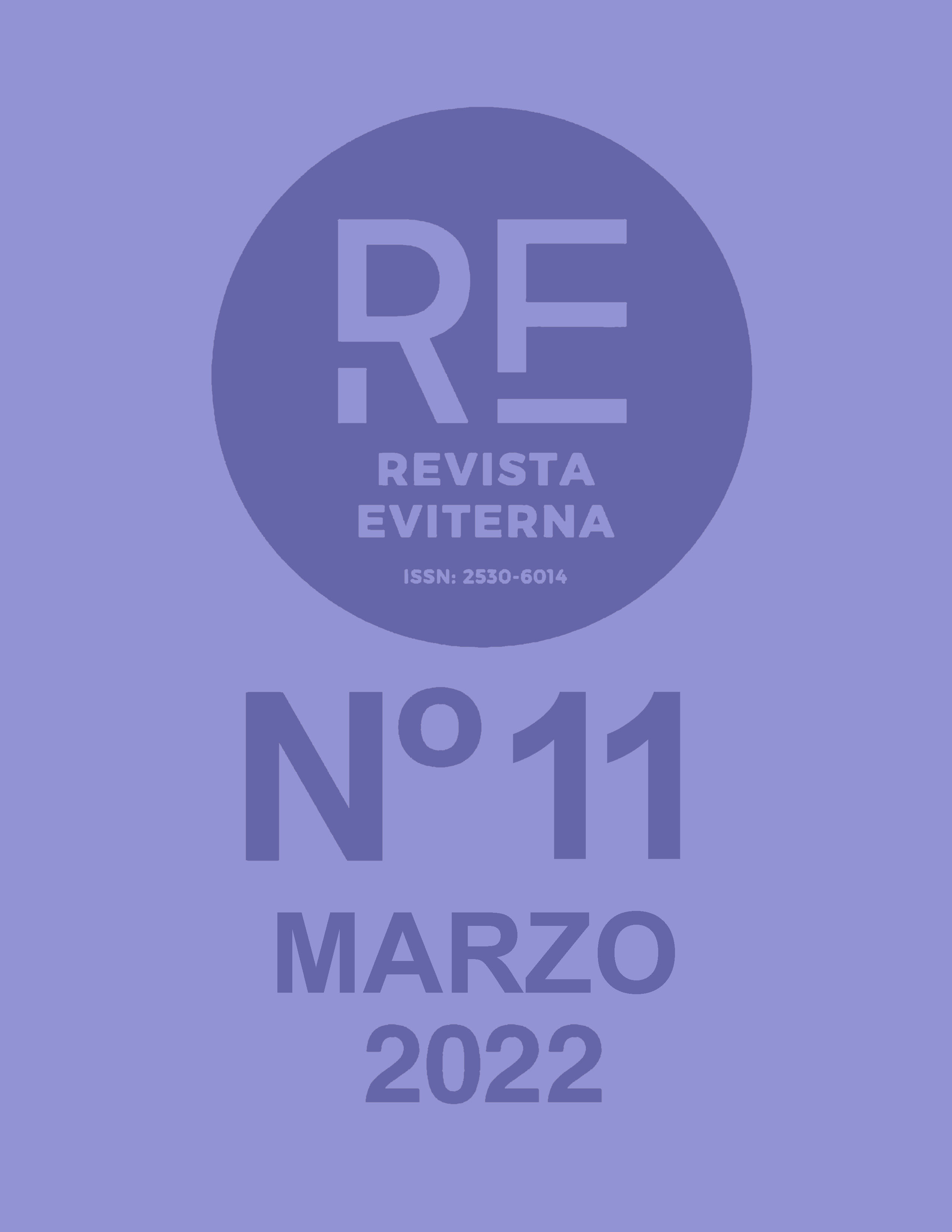El cine como origen de la transformación
Myra Breckinridge, su adaptación cinematográfica y Myron de Gore Vidal
DOI:
https://doi.org/10.24310/Eviternare.vi11.14016Palabras clave:
Literatura, Cine, Libertad, Adaptación, TransexualidadResumen
La novela Myra Breckinridge supuso un nuevo escándalo en la trayectoria literaria del controvertido Gore Vidal en la que desarrollaba los temas arquetípicos de su literatura, la sexualidad no normativa y la contaminación del imaginario cinematográfico en todos los ámbitos culturales y especialmente en la literatura. Myra Breckinridge construía su universo mental y su modelo de comportamiento a partir de la recreación de las formas cinematográficas del Hollywood de la Edad de Oro en un periodo en que la televisión había aniquilado ese arquetipo representacional. El éxito de la novela llevó a una no menos controvertida adaptación cinematográfica considerada como uno de los más rotundos fracasos de la Historia del Cine, así como a la secuela literaria Myron, publicada seis años después. Myra Breckinridge era un alegato reivindicativo en la era de la revolución sexual que desafiaba el marcado conservadurismo que iniciaría la presidencia de Nixon y en la que el Vidal más desenfrenado hacía proselitismo de modelos relacionales hasta el momento invisibilizados a través del metafórico mundo de la imagen como patrón de comportamiento. El escritor y activista norteamericano demostraba la influencia del cine en la literatura confundiendo premedítamele realidad y ficción y en la que las filias y fobias literarias del escritor norteamericano –Henry James, Tennessee Williams y Norman Mailer entre otros– aparecían en los libros y en su adaptación a la gran pantalla. Las novelas Breckinridge relatarían a través del imaginario cinematográfico la tendencia aperturista de la normatividad sexual iniciada en Norteamérica a finales de los años sesenta.
Descargas
Métricas
Publicación Facts
Perfil de revisores N/D
Información adicional autores
Indexado: {$indexList}
-
Indexado en
- Sociedad Académica/Grupo
- N/D
- Editora:
- Universidad de Málaga
Citas
Bloom, H. (2000). El canon Occidental. Trad. Damià Alou. Barcelona: Anagrama.
Diffrient, D. S. (2013). “Hard to Handle”: Camp Criticism, Trash-Film Reception, and the Transgressive Pleasures of Myra Breckinridge. Cinema Journal 52 (2), 46-70.
Halbout, G. (2017). Myra Breckinridge et le passager clandestin. Kitsch, camp et inconscient hollywoodien. Revue Lisa/Lisa e-journal, vol. XV (1) doi: 10.4000/lisa.9064
Kiernan, R. F. (1982). El mundo de Gore Vidal. Traducción Luz del Carmen Rodríguez Martínez. México: Noema.
Tejero, J. (2010) Myra Breckinridge. En ¡Qué ruina de película! Los grandes fiascos del nuevo Hollywood. Madrid: T&B.
Paglia, C. (2019). On Myra Breckinridge and the Life of Gore Vidal. [Entrada de blog] Recuperado de https://lithub.com/on-myra-breckinridge-and-the-life-of-gore-vidal/
Vidal, G. (1976). Myron. Traducción Ramón Alonso. Barcelona: Grijalbo.
--- (1991). Ensayos 1982-1988. Traducción Pedro del Carril. Barcelona: Edhasa.
--- (1999). Una memoria. Traducción Richard Guggenheimer. Barcelona: Mondadori.
--- (2001). Patria e imperio. Traducción Eduado Iriarte Barcelona: Edhasa.
--- (2003). La invención de una nación. Traducción Jaime Zulaika. Barcelona: Anagrama.
--- (2004). Sexualmente hablando. Traducción Aurora Echeverría. Barcelona: De Bolsillo.
--- (2006). En busca del rey. Traducción Carlos Gardini. Barcelona: Edhasa.
--- (2006). Myra Breckinbridge. Traducción Rosendo Castillo. Barcelona: DeBolsillo.
--- (2007). Ensayos (1952-2001). Traducción Eduado Iriarte. Barcelona: Edhasa.
--- (2008). Navegación a la vista. Traducción Aurora Echeverría Pérez. Barcelona: Mondadori.
Stanton, R. J. y Vidal G. (1983). Conversaciones con Gore Vidal. Barcelona: Edhasa.
Williams, T. (2008). Memorias. Traducción Antonio Samonds García. Barcelona: Bruguera.
Publicado
Cómo citar
Número
Sección
Licencia
Todos los contenidos publicados en Revista Eviterna están sujetos a la licencia Creative Commons Reconocimento-NoComercia-Compartirigual 4.0 cuyo texto completo puede consultar en <http://creativecommons.org/licenses/by-nc-sa/4.0>

Se pueden copiar, usar, difundir, transmitir y exponer públicamente, siempre que:
- Se cite la autoría y la fuente original de su publicación (revista, editorial y URL de la obra).
- No se usen para fines comerciales.
- Se mencione la existencia y especificaciones de esta licencia de uso.
Los derechos de autor son de dos clases: derechos morales y derechos patrimoniales. Los derechos morales son prerrogativas perpetuas, irrenunciables, intransferibles, inalienables, inembargables e imprescriptibles.
De acuerdo con la legislación de derechos de autor, Revista Eviterna reconoce y respeta el derecho moral de los autores/as, así como la titularidad del derecho patrimonial, el cual será cedido a la Universidad de Málaga para su difusión en acceso abierto.
Los derechos patrimoniales, se refieren a los beneficios que se obtienen por el uso o divulgación de las obras. Revista Eviterna se publica en open access y queda autorizada en exclusiva para realizar u autorizar por cualquier medio el uso, distribución, divulgación, reproducción, adaptación, traducción o transformación de la obra.
Es responsabilidad de los autores/as obtener los permisos necesarios de las imágenes que están sujetas a derechos de autor.







12.png)



